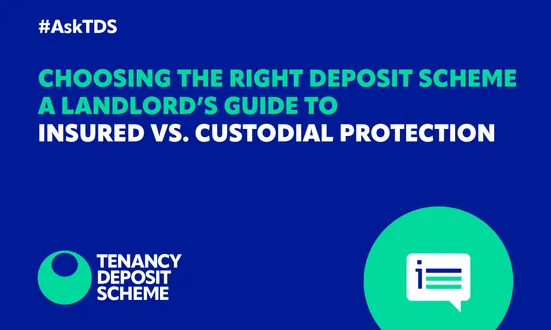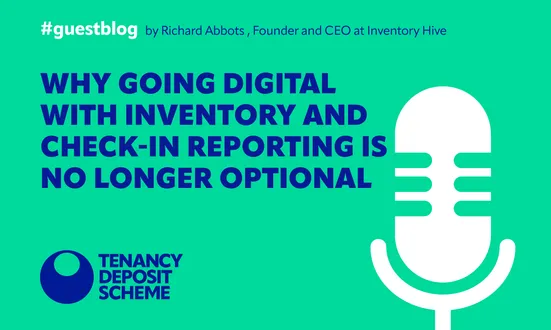A guest blog from The Letting Partnership.
Being a letting agent today means keeping up to date with an ever-changing list of rules and regulations -governing how a property may be let and managed, whilst ensuring fair treatment of all parties.
This, whilst also looking out for their landlords’ best interest and earning a living.
On top of this, agents must ensure their business complies with wider industry regulations. Failure on either of these fronts can lead to financial penalties and damage to reputation, which could be disastrous for a small agency.Letting agencies run by experienced agents with years of history in the industry are likely to have crossed all of their T’s and dotted all of their I’s, however there are many ‘accidental letting agents’ who may not be 100% sure of their obligations. These are estate agents who have, possibly reluctantly, moved in to lettings rather than turn down business, financial consultants, mortgage advisers and private landlords who have found themselves looking after several properties and decided to turn it in to a business.
These ‘accidental letting agents’ may have little or no industry experience and, whilst the information is out there, it’s not particularly easy to find out exactly what needs to be done to stay compliant.
At The Letting Partnership we have worked with countless new entrants to the lettings industry and understand how complicated the multiple rules and regulations around compliance are.
So here’s an overview of the basic business compliance requirements for new agents. Experienced agents may also want to carry out a routine check to make sure their agency is still compliant:
- Hold a ‘Client Account’
As of the 1st April 2020, it has been a legal requirement for all letting and property management agents to hold a segregated ring-fenced ‘client account’ to handle client money.
Client money is any money that your business holds or has received on behalf of a client which it is not beneficially entitled to. It includes tenants’ deposits, rents & fees. You should ask for a letter from your bank confirming that the account is ring-fenced and that the bank has no right to set off funds against any company, business or personal liabilities.
- Be a member of a Redress Scheme
Anyone who works in residential property in the UK, whether they are an estate agency, lettings agency or property management company must be a member of an independent approved redress scheme for the purpose of dealing with complaints. Failure to comply could result in a fine of up to £5,000.
Information about the redress scheme should be provided when a lettings agency enters into an agreement with its customers. If an estate agent is already a member of a redress scheme they should make sure that the terms of their existing membership covers their lettings agency work as well as their estate agency work. The two approved redress schemes are:
- Hold Adequate Professional Indemnity (PI) insurance
Whilst PI insurance is not currently a legal requirement it is strongly recommended and is a prerequisite for membership of The Property Ombudsman as well as most other recognised industry trade bodies such as ARLA, NAEA, UKALA, Propertymark and Safeagent (previously NALS). However knowledgeable or skilled you and your team are, human error can lead to a negligence claim being made against you and your company. Professional Indemnity insurance covers companies and individuals for mistakes made as part of people’s day-to-day roles.
- Have Client Money Protection (CMP)
From 1 April 2019 all lettings and management firms handling clients’ money must be part of a Government approved CMP Scheme in order to continue to trade. These schemes make sure landlords and tenants are compensated if you cannot repay their money, for example if you go into administration.
Agents that belong to an industry trade body may already be covered for CMP. The following trade bodies offer comprehensive CMP cover to their member firms: Propertymark, RICS, UKALA and SafeAgent so it’s worth checking this first. Agents in England and Wales who do not have membership of a professional body can get their CMP through Money Shield or ClientMoney Protect instead.
Due to the wording of the regulations, the requirements for agents who use a CASP (Client Accounting Service Provider) are arguably open to interpretation. However, it is strongly recommended, and may be a contractual requirement of a Client Accounting Service Provider, that there is CMP for all lettings businesses.
- Register with an approved Deposit Protection Scheme
All deposits taken on Assured Shorthold Tenancys (ASTs) must, by law, be protected in one of the Government approved deposit protection schemes within 30 days of receipt. As the majority of residential lettings are on ASTs it is recommended that all letting agents (and landlords) register with one of the schemes. Failure to properly protect a tenant deposit can result in a fine of up to 3 times the amount of the original deposit and could invalidate any Section 21 Notice served at a later date to gain possession of your property.
For more information go to: https://www.gov.uk/deposit-protection-schemes-and-landlords
- Register with the Information Commissioner’s Office (ICO)
Under the Data Protection Act 2018 every organisation or sole trader which processes personal information needs to pay a data protection fee to register with the ICO, unless they are exempt, and they must renew every year. Failure to comply could land a letting agent with a penalty of up to £4,000 on top of the fee. Agents can check if they need to register on the ICO Self Assessment.
- Comply with Money Laundering Regulations (MLR)
Agents with properties rented at or above €10,000 (or equivalent) per month must register with HMRC for Anti Money Laundering (AML) supervision and carry out enhanced due diligence on the parties carrying out the transaction – the landlord and tenant.
It is our opinion at The Letting Partnership that all letting agents should register for AML supervision irrespective of this limit. Certainly, if any properties straddle this rental value we would advise they register to avoid this grey area.
Whilst the UK government opted out of the EU’s 6th AML Directive (the €10,000 limit was the 5th AML Directive), it is likely that they will create further UK AML regulation and enhance it. We would advise agents to get ahead of the game by registering for AML supervision now.
Furthermore, even if properties are rented out for less than €10,000 per month, agents still have a legal obligation to be mindful of the transactions they are facilitating. Report any suspicious activity via a Suspicious Activity Report (SAR) to the National Crime Agency.
You can get more information here:
Your responsibilities under money laundering supervision
Estate agency business guidance for money laundering supervision
- Keep your office and website compliant
Agents should clearly display the following in their offices and on their website:
- a statement indicating membership of a redress scheme
- the name of the redress scheme belonged to + logo + membership number
- name and logo of CMP provider and a viewable certificate
- landlord and tenant fees & charges
Letting agents should also publish a privacy statement to comply with GDPR and state they are registered with the ICO. Even for established letting agents, it’s all too easy to forget something occasionally. It might be as simple as an agent’s industry trade body membership lapsing, with the knock-on impact that their CMP would be cancelled, and the certificate should not therefore be displayed on their website. Letting agents, whether new or established should make a habit of checking these main points to ensure they remain compliant.
TLP Disclaimer! This article does not cover all aspects of legislation and you could still be non-compliant in other areas.
The Letting Partnership
The Letting Partnership is an award-winning Client Accounting Service Provider who provide outsourced services for agents throughout the UK. We have a wealth of letting industry knowledge earned by many years doing exactly what you do. We understand the day-to-day issues and frustrations that you deal with daily.
In addition to working with agents, we partner with industry regulators, deposit protection providers and insurers in all areas of financial compliance and client money protection.
If you would like to discuss the possibility of outsourcing, please call 01903 477 918 or email enquiries@thelettingpartnership.co.uk
Other news stories


